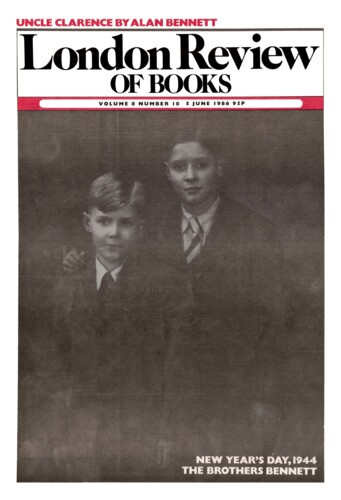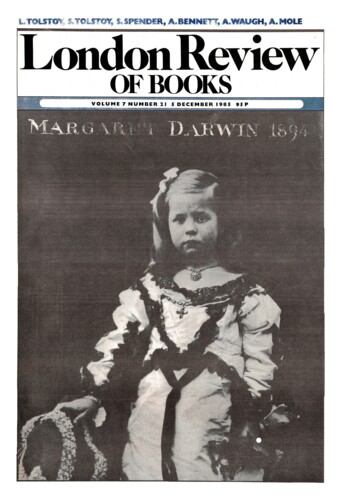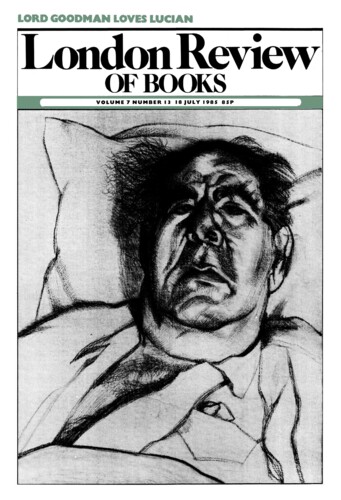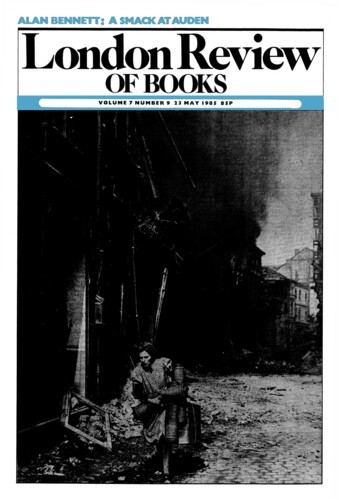Diary: Nuclear Power after Chernobyl
Tam Dalyell, 5 June 1986
Those who live in glass houses should not throw stones. Those who, maybe understandably, conduct their civil nuclear affairs with an occasional under-injection of candour should not be too quick to condemn the secretiveness of Russia. With a timing that is perfect in its irony, it has emerged this spring, thanks to the 30-year rule, that in 1957 Harold Macmillan, then Prime Minister, took a decision that would have done credit to the most reticent of regimes. Told that there had been a graphite fire at Windscale, Macmillan deemed it better that the British public should not know, and that the Irish, across the water, should not be informed. Horrifying, deceitful, wicked, many people would now say. But, are we, even with the benefit of hindsight, quite sure?





